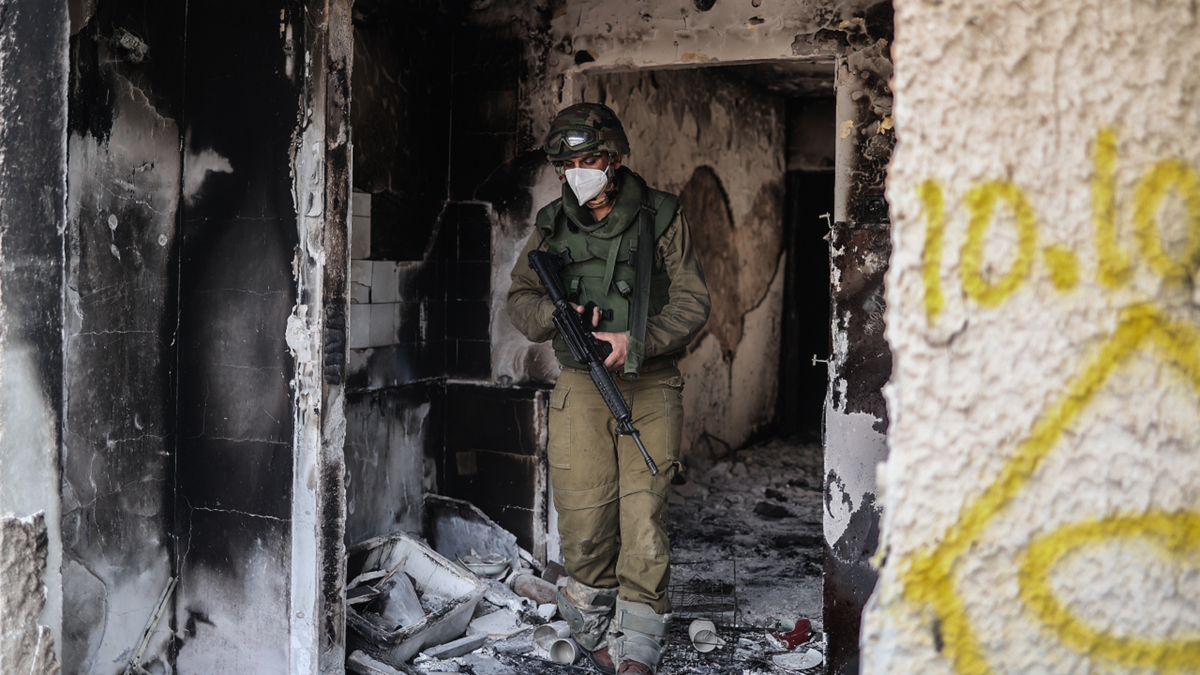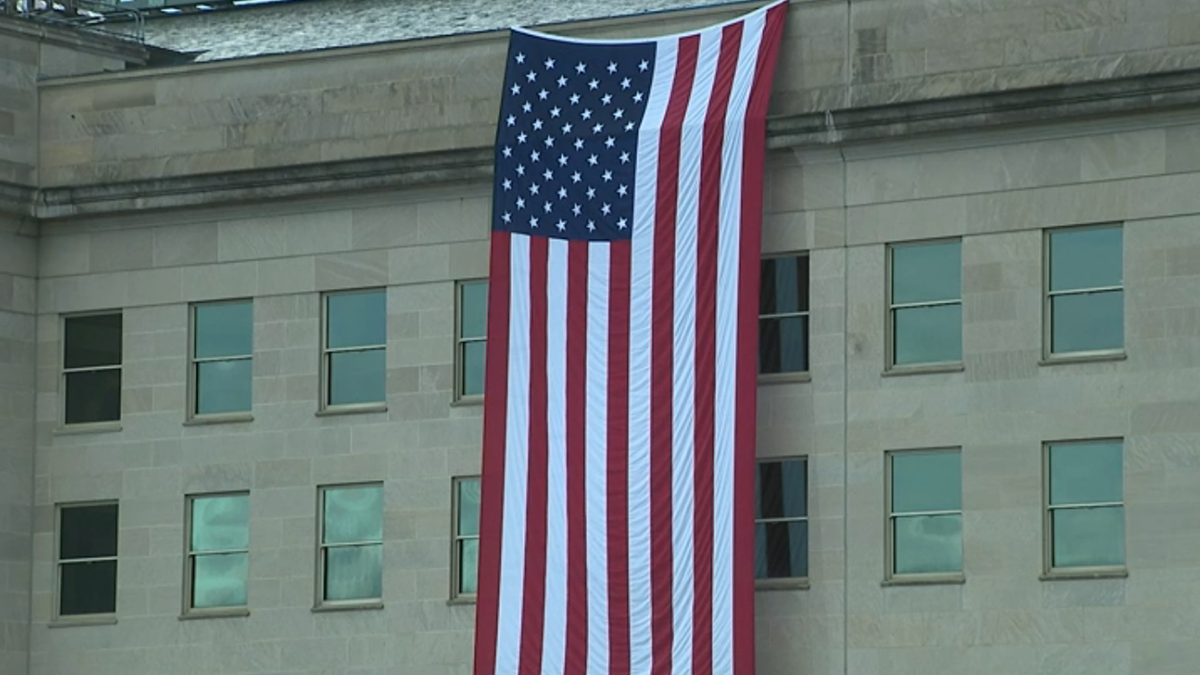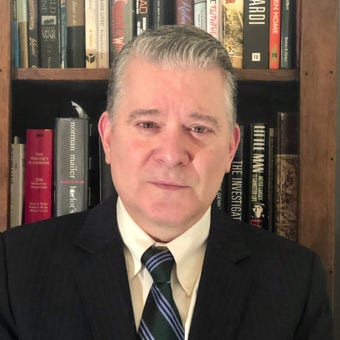Cornell professor reacts to Hamas' terrorist activities: 'Exhilarating'
Cornell University professor Russell Rickford responds to Hamas atrocities in Southern Israel at a pro-Palestinian rally in Ithaca, New York.
As a retired NYPD Inspector who spent roughly 15 years working counterterrorism, I saw the threats to the homeland wax and wane over my career. For some time now – and certainly since January 6th – our domestic intelligence agencies have focused heavily on what’s euphemistically called, "homegrown violent extremists."
While this term sounds expansive, in practice it has meant a politically motivated preference for monitoring right-wing groups that ostensibly present what President Joe Biden has called, an "existential crisis."
The focus on these groups has been a luxury belief of Washington elites made possible only by the cessation of the threat of Islamist extremism, due to the tireless work of previous intelligence and law enforcement officials.
With events unfolding in Israel now, domestic counterterrorism officers must renew their efforts to secure the homeland from Islamist threats, as they did post-9/11.

An Israeli soldier inspects a destroyed house in Kfar Aza after the attack. (Ilia Yefimovich/picture alliance via Getty Images)
It won’t be easy – there’s the new development of the nation’s porous southern border. When I worked counterterrorism, the appearance in New York City of a person from a nation of concern, who showed no entry footprint and who sources reported might have ill-intent, would have been given Priority One. Yet currently, we not only encourage arrivals who might fit that description – we pay for their travel to and upkeep in some of the nation’s major terror targets (including New York City).
This matters because a person who enters the country without the vetting of a visa or customs process arrives as a ghost about whom law enforcement knows nothing. A basic of law enforcement is minute scrutiny of a subject’s past. Where is he from? Does he have military training? Is there a friendly overseas service who might know him? Are there biometrics on him to match to a database in Interpol? Europol? U.S. Customs?
While such a subject puts law enforcement at a tactical disadvantage, it also means that innocent migrants could find themselves the object of unmerited scrutiny. Multiply that by thousands of arrivals from areas of concern, and one sees no recipe for a workable system.
The danger here becomes even more apparent when we consider that Iran (and by extension, Iran’s proxy Hezbollah) is heavily implicated in the current events in Gaza. Iran has long had a strong presence in Latin America.
The former vice president of Venezuela Tareck El Aissami, for instance, is a designated drug kingpin by U.S. Treasury. Aissami is known to have longstanding contacts to Mideast nations and is believed by U.S. law enforcement to have provided false passports to Hamas and Hezbollah elements.
In the tri-border region of South America – the area at the junction of Paraguay, Brazil and Argentina – Hezbollah may be the single most coherent entity in an utterly lawless region. The tri-border is a major money-maker for Hezbollah, through its involvement in money laundering and narcotics trafficking. Beginning in 2005, Iran began an initiative to increase its presence in Latin America, opening six new embassies and putting the puppet-master of the current Gaza war at America’s doorstep.
In terrorist time, three decades is a tick of the clock – meaning that to address the present, counterterrorism officials must know the past. In 1994, Hezbollah, almost certainly at Iran’s behest, bombed a Jewish cultural center in Buenos Aires, killing 87. More recently in 2012, Hezbollah bombed an Israeli tour bus in Bulgaria, killing six.
The point is that Iran (unlike Hamas itself) has demonstrated the willingness and tradecraft to project terrorism overseas. Indeed, a plot to assassinate the Saudi ambassador to the U.S. in 2011 was staged and launched from Mexico. And at this writing, the U.S. embassy is under attack in Iran’s client state, Lebanon (where Hezbollah is centered).

America needs to devote counterterrorism efforts to Islamist threats just like we did after 9/11. FILE: An American flag hangs over the side of the Pentagon on Monday, Sept. 11, 2023, to commemorate the 22nd anniversary of the terror attacks. (Fox News)
The other main domestic threat arising from the Gaza war is from those radicalized to violence by images emerging in the media. The threat can run the continuum from genuine Hamas-adherents to "lone wolves" harboring a litany of grievances.
We’ve seen examples of this already in the recent harassment and assault of a Jewish man in Brooklyn by an assailant shouting, "Allahu Akbar" to the killing of a teacher in France. In Illinois, an unhinged man killed a Palestinian child in reaction to the news from Gaza – demonstrating just how unpredictable such attacks are, and how difficult they are to track and interdict no matter what the motivation.
CLICK HERE FOR MORE FOX NEWS OPINION
Additionally, one need only watch the news to also see tens of thousands of students at our elite universities marching to support Hamas. This is different from advocating for the Palestinian people; Hamas is a designated terrorist organization which attacked Israel with unprecedented brutality. That professors could proclaim themselves "exhilarated" by the beheading of babies only foments the sort of hatred that leads to vulnerable individuals becoming radicalized.
Do these students realize that by chanting, "From the river to the sea, Palestine will be free," equates to the elimination of the state of Israel? Is that actually their aim?
The point is that Iran (unlike Hamas itself) has demonstrated the willingness and tradecraft to project terrorism overseas. Indeed, a plot to assassinate the Saudi ambassador to the U.S. in 2011 was staged and launched from Mexico. And at this writing, the U.S. embassy is under attack in Iran’s client state, Lebanon (where Hezbollah is centered).
If so, domestic counterterrorism officials may soon have their hands full from a whole new incubator of radicalism.
CLICK HERE TO GET THE FOX NEWS APP
At this point, domestic counterterrorism officers cannot afford a wait-and-see strategy. The development of reliable sources of information can take months, if not years. Further, the deep situational expertise necessary to discern a genuine threat from posturing requires years of immersion in the work.
One hopes that the Department of Justice has now recognized it’s time to forego its concerns about the threat from traditional Catholics and has begun focusing more on those who might genuinely pose an "existential threat" to our country.












































